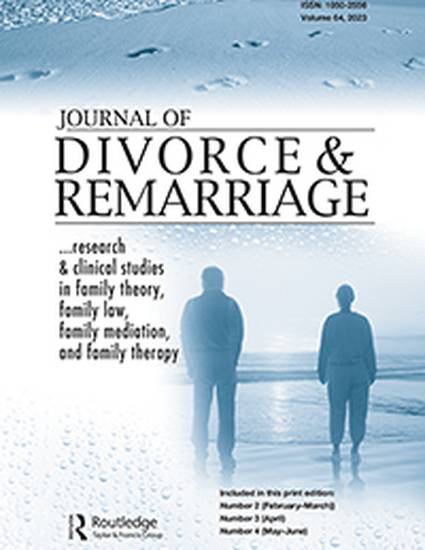
Article
Revisioning Acrimony: The Development and Validation of Short Scales Measuring Relationship Hostility and Parental Co-Operativity
Journal of Divorce & Remarriage
(2023)
Abstract
In this paper we identify and validate the structure of the acrimony scale and introduce two shorter versions: the AS-18 and the AS-10. Investigations using two large, independent samples of family mediation clients suggest a two-factor solution. We make a theoretical case for distinguishing between acrimony and conflict, and for measuring both acrimony and the capacity for cooperation remaining in a relationship between separated parents. We find that both dimensions can be retained in the shorter versions of the scale, which nevertheless demonstrate good reliability and validity. The subscales for the AS-10 consist of six items measuring “relationship hostility” and four items measuring “parental cooperativity.” These short subscales may be useful in practice and research settings where it is necessary to measure either parental acrimony, potential for cooperation, or both, whilst minimizing respondent burden.
Keywords
- Acrimony,
- conflict,
- family,
- separation,
- co-parenting,
- parental co-operation,
- mediation,
- short scales,
- factor analysis,
- item response theory
Disciplines
Publication Date
August 7, 2023
DOI
https://doi.org/10.1080/10502556.2023.2242752
Citation Information
Genevieve M Heard, Eunjung Lee, Siek Toon Khoo and Andrew Bickerdike. "Revisioning Acrimony: The Development and Validation of Short Scales Measuring Relationship Hostility and Parental Co-Operativity" Journal of Divorce & Remarriage Vol. 64 Iss. 2-4 (2023) p. 173 - 197 ISSN: 1540-4811 Available at: http://works.bepress.com/siek_toon_khoo/69/
